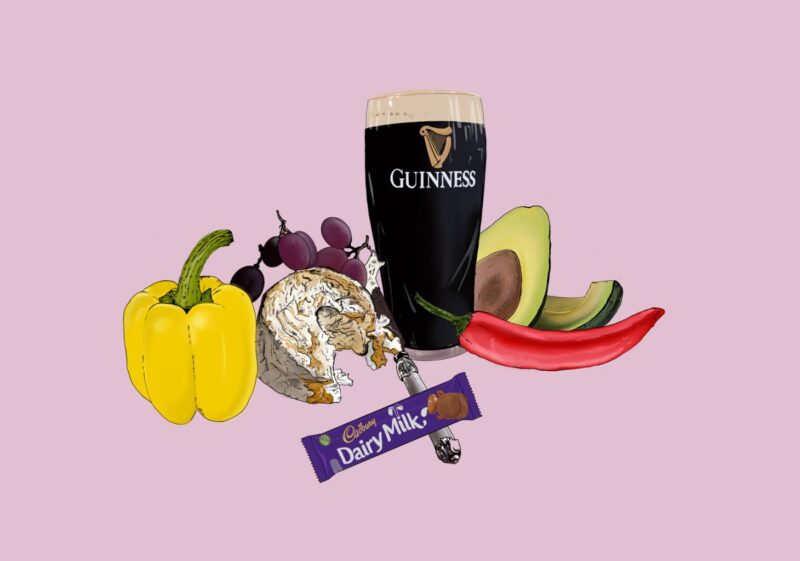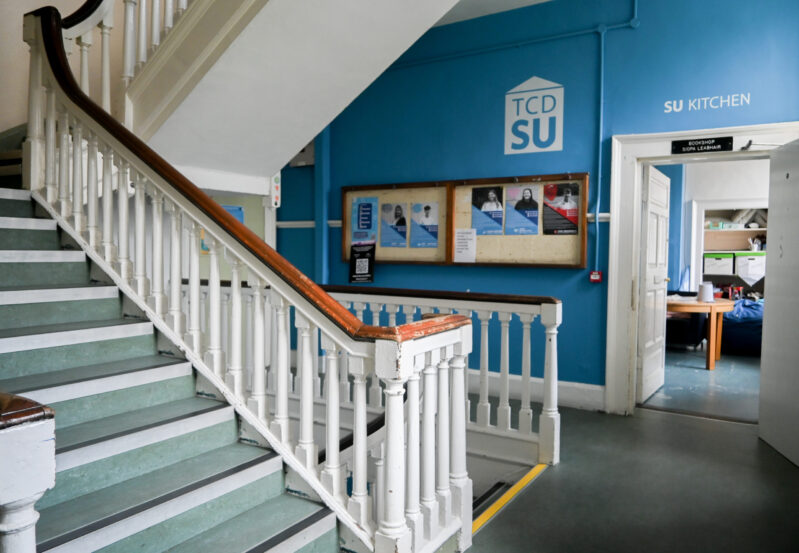
If the phrase “ten euro baby!” floods your brain with the sound of a foghorn and an image of flames, then you likely need no introduction to Sian Conway. “Our first ‘Dublin on a Tenner’, I was shit scared,” Conway, the Socials editor for Char Magazine, tells me. “My boss was like: go out and make a video, and “ten euro baby” came out my mouth because I was so stressed and anxious and I was like I can see people I have shifted before walking past looking at me”.
The series does what it says on the tin, highlighting places to get a satisfying meal in Dublin for under €10. But this is far from the only reason that the Irish food guide has become the skint student’s saviour and favourite of foodies. It is a go-to for news of the latest restaurant openings, lesser-known meal deals and analysis of food trends – where would a D2 mob wife eat? – but its content also favours a specificity that makes it as entertaining as it is useful. “I remember waking up one night in the middle of the night last year and I was like I don’t have a video idea for tomorrow. I don’t have anything. Fuck! What am I going to do?” Conway recalls. Instead of showing up to work empty handed, she came to the obvious conclusion: “I’m going to invent ‘Anthony Bourdain Autumn’ and I’m going to see if it works.”
The concept is one of many that Conway and Char have popularised. They might seem frivolous, but they also speak to a certain gap in food content for those not quite the naive tourist but dodging gastronomic snobbery. Char allows those interested in food culture or simply passionate about what they put in their mouths to learn about novel places, dishes and deals, without acquiescing to the feeling of superiority or out of reach sophistication which sometimes arrives as fine dining’s unwanted side dish. Conway leans into nicheness without being exclusionary. And that formula is successful: “I didn’t expect [Anthony Bourdain Autumn] to do so well on TikTok; it kind of went outside of just Irish TikTok and onto people who just love Bourdain – which is, I guess, everyone.”
The magazine’s ‘Dublin 100 Guide’ is revered by those too hungover to decide where to eat brunch or in need of a dinner recommendation while parents are in town. But even content like this – which might appear more typical than constructing a season verging on a cult of personality – reads more like the Friends back catalogue than a list of restaurants. It suggests ‘The Place for When Cheering Your Friend Up is Your Moral Imperative’ and ‘The Place for Convincing Your Friends that Dublin Does, In Fact, Have A Food Culture.’ On the latter front, Conway insists that being a small city is far from a hindrance: “Its size does lend itself to this beautiful, unique and well-connected kind of food culture.” She mentions big businesses collaborating with newly opened spots and Michelin-starred chefs raving about their local. This does also mean that outlets such as Char are operating in a “very shared arena”, though, and Conway says her team often bump into other people documenting Dublin’s food scene on social media, such as the Lovin’ Dublin Instagram account, when they’re working in the city.
Take a gander through Char’s Instagram, though, and it is apparent that Dublin is far from an idyll for food businesses. Among the litany of exciting new spots to eat are notices of the vast amount of restaurants and cafes shutting down. The population of Trinity may have to venture all the way to Rathmines for moodily lit first dates now that P Macs is shutting, and January brought the news that Tolteca is also closing down. “People are really struggling”, Conway admits. In the past six months, more than 300 restaurants across Ireland have shut.
Conway remains hopeful, though: “Right now, obviously, it’s very difficult for a lot of food places, but I think a lot of innovation and creativity does come out of those unfortunate situations,” she says, recalling the time of the recession when “things were obviously really bad and really austere and nobody had any hope, but it seemed like a first wave of new, cool, interesting food projects – more modern stuff – was happening around then.”
Obviously connected to this is the fact that many people cannot afford to eat out in the way they may have previously, something Conway says everyone at Char is conscious of. This is evident in their foregrounding of the “little treat” that “isn’t going to leave you out of pocket for the next few weeks” (on this front, Conway recommends a cannoli from Amuri By Day, just off Grafton Street). Although her job revolves around recommending places to spend money on food, she does “try and be mindful of it at Char as well that we can’t afford to eat out all the time [either] – maybe your Irish Times journalists and food reviewers of the Sunday Independent can do a bit more of that.” It’s the reason she loves their ‘Dublin on a Tenner’ series, and tells me fervently about the incredible value of the Fallon & Byrne soup and sandwich deal.
Food has also always been a way to uplift oneself and others, though, and not just through comfort eating. After the Dublin riots in November, Char compiled a list of ‘50 Minority & Immigrant-Owned Restaurants to Support Always But Especially Now’. “There are people out there who are making them feel like they’re not a valued and respected part of this island”, Conway says, acknowledging that although the ways in which food can help people in the throes of crises are obviously limited, it is still “a reminder of ultimately what I feel humanity comes down to: this sense of community that’s always mostly shared around food.”
The magazine have also created a list of Palestinian food businesses in Dublin to back, and showed support for the Palestinian restaurant Shaku-Maku in Rathmines after it was review bombed in November. “To be able to show solidarity through the lens of food is a really beautiful thing”, says Conway. Not only is it “a physical reminder of the people that need help,” but economic choices can carry weight. Despite being a self-described “Diet Coke fiend”, she has been boycotting the brand since October due to their links to Israel, and now waxes evangelical about the Aldi version: “You put it in a glass with some ice and a nice wedge of lime and you’re laughing”.
And it is thoughtful laughter that pervades all of Conway’s content. Along with her coworker Shamim – she holds two crossed fingers up to emphasise their closeness – they aim for every video “to have integrity, for it to be a bit silly and to be […] informative”. In a way, it is a mirroring of food’s own ability to be both frivolous and a necessity, something you can not think about that can also carry great cultural, social and sentimental weight. In reflecting this quality, it seems, Conway has found a perfect recipe.






